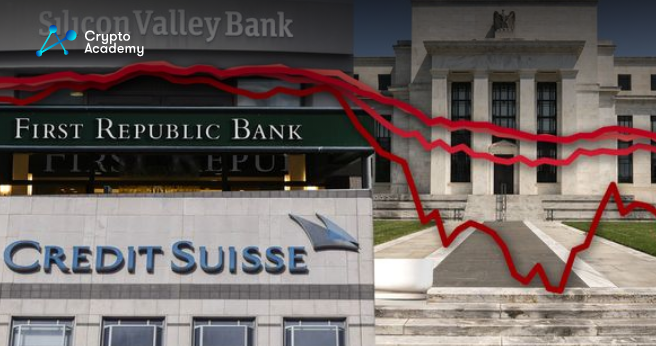The banking crisis triggers a record $286 billion inflow into US money market funds (MMF), benefiting Goldman Sachs, JPMorgan Chase, and Fidelity.
The ongoing banking crisis has compelled investors to restructure their portfolios, leading to a staggering $286 billion injection into US money market funds (MMF) within a mere two-week span, according to recent reports. EPFR data, as referenced by the Financial Times, indicates that this influx signifies the largest monthly volume since the early days of the Covid-19 pandemic. In the midst of financial instability, major financial institutions like Goldman Sachs, JPMorgan Chase, and Fidelity have emerged as the primary beneficiaries of this trend.
Money market funds, known for their high liquidity and minimal risk, have become the investment vehicle of choice for those seeking financial security during these precarious times. As the US Federal Reserve continues to elevate interest rates to counteract inflation, money market funds have become even more appealing, offering their highest yields in recent years.
A report published by the Investment Company Institute discloses a substantial $117.42 billion increment in total money market fund assets over the week ending March 22, amounting to an impressive $5.13 trillion. Taxable money market funds witnessed a $131.84 billion increase in government funds, while prime funds experienced a $10.83 billion reduction. Tax-exempt money market funds, conversely, contracted by $3.61 billion.
As investors flock to US money market funds amid the banking crisis, Goldman Sachs, JPMorgan Chase, and Fidelity have reaped significant rewards. Goldman Sachs’ money funds accrued $52 billion, representing a 13% growth, while JPMorgan’s funds drew nearly $46 billion, and Fidelity observed inflows amounting to approximately $37 billion, according to the Financial Times.
FUD & Monetary Policy
The primary driving force behind the massive inflows into money market funds is the mounting anxiety regarding the financial system’s stability. As monetary policies tighten, banks across the US and Europe are grappling with liquidity challenges. Deutsche Bank, for example, experienced a decline in share value on March 24 due to the escalating cost of insurance against potential default risk. The German bank’s five-year credit default swaps (CDS) rose by 19 basis points (bps) from the previous day, settling at 222 bps, as documented by Reuters, citing S&P Global Market Intelligence data.
In the United States, regional banks are also shrouded in uncertainty, with insurance on default for financial services firms Charles Schwab and Capital One surging over the past week. Notably, Capital One’s CDS leaped more than 80% to 103 bps as of March 20.
In light of the evolving banking crisis, it is crucial for investors to remain vigilant and implement strategic measures to safeguard their portfolios. The shift toward money market funds underscores the growing demand for more secure investment alternatives during these tumultuous times. By diligently monitoring the ongoing developments, investors can make well-informed decisions that preserve their financial well-being amidst uncertainty.

